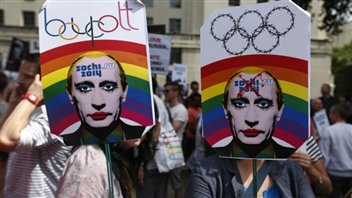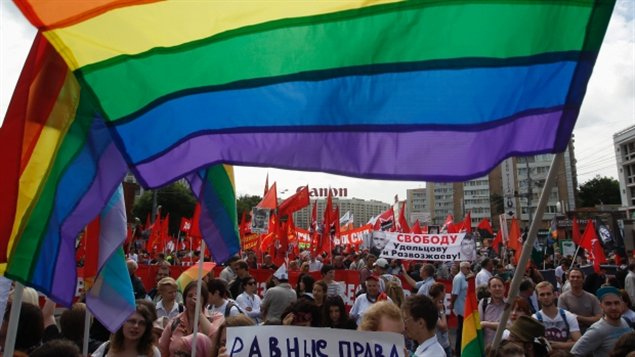Canadians must be careful to not break Russia’s anti-gay law when they are there but they also have an obligation to apply pressure to have the law withdrawn, says Fo Niemi, executive director the Centre for Research Action on Race Relations.
“An attack on gay rights… is an attack on fundamental human rights,” says Niemi. The law bans “propaganda of non-traditional sexual relations” especially with regards minors.

Anti-gay law called “vague” and “draconian”
“That law is very vague and can be very sweeping because it does not define what propaganda means,” says Niemi. “That means if you are a human rights advocate or if you are a lay person believing that you should not discriminate against people on the basis of sexual orientation and if you say so publicly when you are in Russia you can get arrested, you can be jailed and you can be fined.”
People can be thrown into jail just for voicing their opinions, Niemi concludes, calling the law draconian. Beyond that he says it is a sign of Russia’s “persistent and growing record of human rights violations, often in the name of ethnocentric Russian nationalism.” As examples, he lists the curtailing of freedom of the press, jailing scientists and business leaders, human trafficking, torture, and open discrimination against migrants and ethnic minorities.

Other countries resist gay rights
Nigeria, Uganda and India are among other countries that curb gay rights, notes Niemi. More traditional and more religious societies have complained international efforts to protect LGBT rights are a new form of western cultural imperialism.
Niemi counters the same was said of efforts to protect women’s rights 20 or 30 years ago. “There was a time when basically to push a woman’s equality was seen as a western standard that is foreign to many cultures, but now, increasingly, women’s rights are considered fundamental human rights and universal human rights.”
Many Canadians will go to Russia for the Sochi Olympics but beyond that Canadians go for business, education, and cultural reasons. Niemi says they must be informed of the dangers they face with the anti-gay law and discuss with their employers and organizations how best they can protect themselves. He adds Canadians also need to pressure their own government to try to get Russia to roll back the legislation
.







For reasons beyond our control, and for an undetermined period of time, our comment section is now closed. However, our social networks remain open to your contributions.